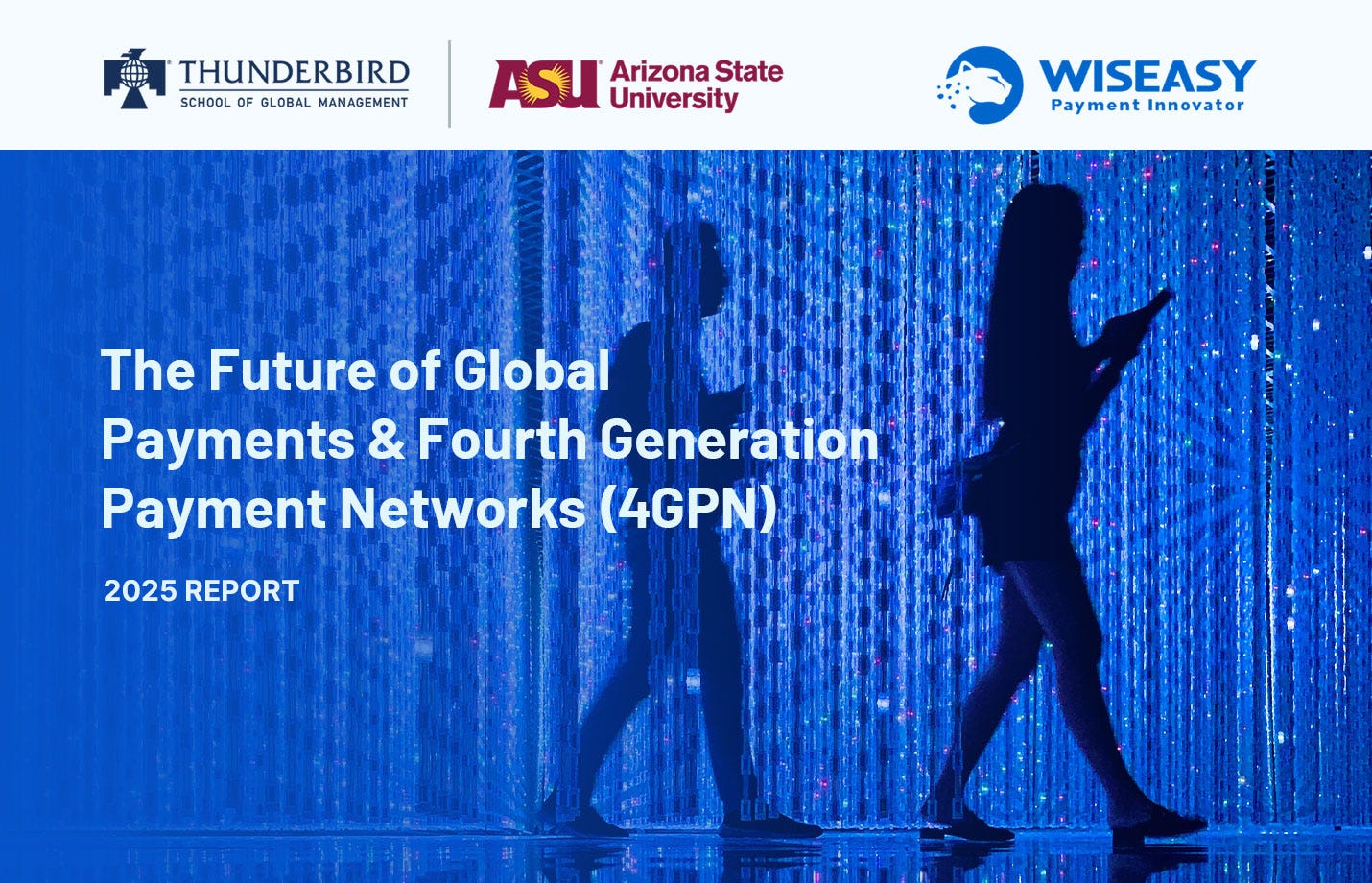Reports: Embedded Finance - Building the business case for SaaS companies; Fourth Generation Payment Networks (4GPN); Is AI a cost-saver or a bank-breaker?;
Let’s dive into this week’s curated collection of fintech reports, whitepapers, and expert guidelines in the latest edition of Fintech Wrap Up. Every resource featured is available for download
Insights & Reports:
1️⃣ The Future of Global Fintech: From Rapid Expansion to Sustainable Growth
2️⃣ Is AI a cost-saver or a bank-breaker?
3️⃣ Embedded Finance - Building the business case for SaaS companies
4️⃣ The Role of Tokenized Money & Funds in Cross-Border Transactions
5️⃣ Fourth Generation Payment Networks (4GPN)
6️⃣ Fintech's Next Chapter: From Scaling to Sustainable Growth
7️⃣ Why Tokenised Bank Liabilities Could Be the Future of Cross-Border Payments
TL;DR:
Welcome to the new edition of the Fintech Wrap Up—where we unpack fintech’s shift from fast growth to lasting impact.
The World Economic Forum reports fintech is maturing: customer growth slowed to 37%, but revenue and profit growth remain strong (40% and 39%). Financial inclusion is now central, especially in emerging markets, and 84% of fintechs are partnering with incumbents to scale. AI adoption is soaring—80% are using it to improve service and cut costs, with 75% reporting higher profitability.
But banks risk falling behind. BCG finds most are treating AI as a cost-saver, not a game-changer. Only 25% are using it for competitive edge. To stay relevant, banks must rethink strategy, modernize infrastructure, and embed AI across the board.
For SaaS companies, embedded finance is becoming essential. Integrating payments, lending, and financial tools directly into software boosts revenue, retention, and product stickiness. Key success factors? A strong payments base, $50M+ in GPV, and the right partner.
Tokenization is also gaining ground. Hong Kong’s e-HKD pilot and real-world tests by Visa and Fidelity show how CBDCs and tokenized deposits can enable real-time, cross-border asset settlement—cutting risk and cost.
And a bigger shift is brewing: tokenised bank liabilities. These digital assets promise 24/7, low-cost global payments. With major pilots already live, the foundation for a new financial infrastructure is being laid.
Fintech is no longer just disrupting—it’s rebuilding finance from the ground up.
Insights
Payments Issuing Business Models; The UK Merchant Acquiring Market; Key Considerations for Open Finance;
Reports
The Future of Global Fintech: From Rapid Expansion to Sustainable Growth
Fintech is no longer just disruptive—it’s becoming foundational.
The World Economic Forum’s new report reveals that fintech is shifting gears—from hypergrowth to sustainable, inclusive expansion.
Customer growth is moderating (37% in 2022–23 vs. 55% during the pandemic), but that’s not a slowdown—it’s a sign of maturity. Fintechs are building long-term value, with revenue and profit growth holding strong at 40% and 39%, respectively.
The macro environment is less of a headwind. Only 18% of firms see it as unsupportive now—down from 56% last time. And the funding outlook is recovering too, with just 12% calling it a hindrance (compared to 40% previously).
Financial inclusion isn’t just a goal—it’s core to fintech’s strategy. Underserved groups—MSMEs (57%), low-income individuals (47%), and women (41%)—form a big chunk of customer bases and contribute meaningfully to revenue, especially in emerging markets.
Partnerships are key to scale. 84% of fintechs are teaming up with incumbents, mainly through APIs (52%), tech providers (41%), and funding agreements (36%). The biggest drivers? Better infrastructure (48%), trust (34%), and product innovation (34%).
Regulators are getting more fintech-friendly. 62% of firms say the current regulatory environment is adequate, and 35% see strong clarity. But there’s still work to be done on licensing, coordination, and supervisory capacity.
Keep reading with a 7-day free trial
Subscribe to Fintech Wrap Up to keep reading this post and get 7 days of free access to the full post archives.




